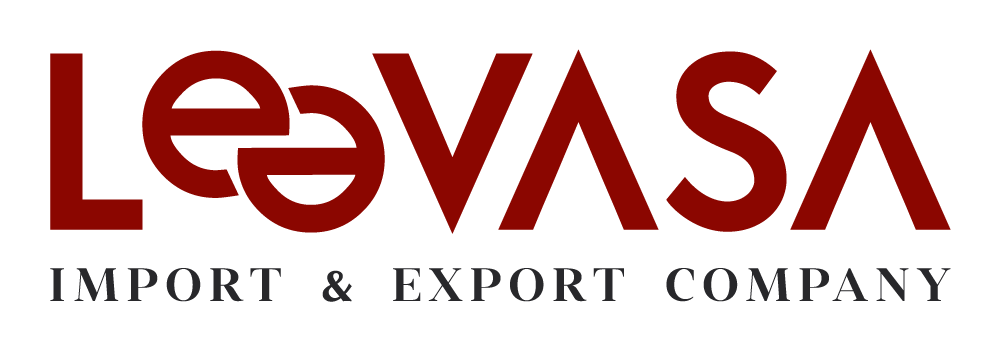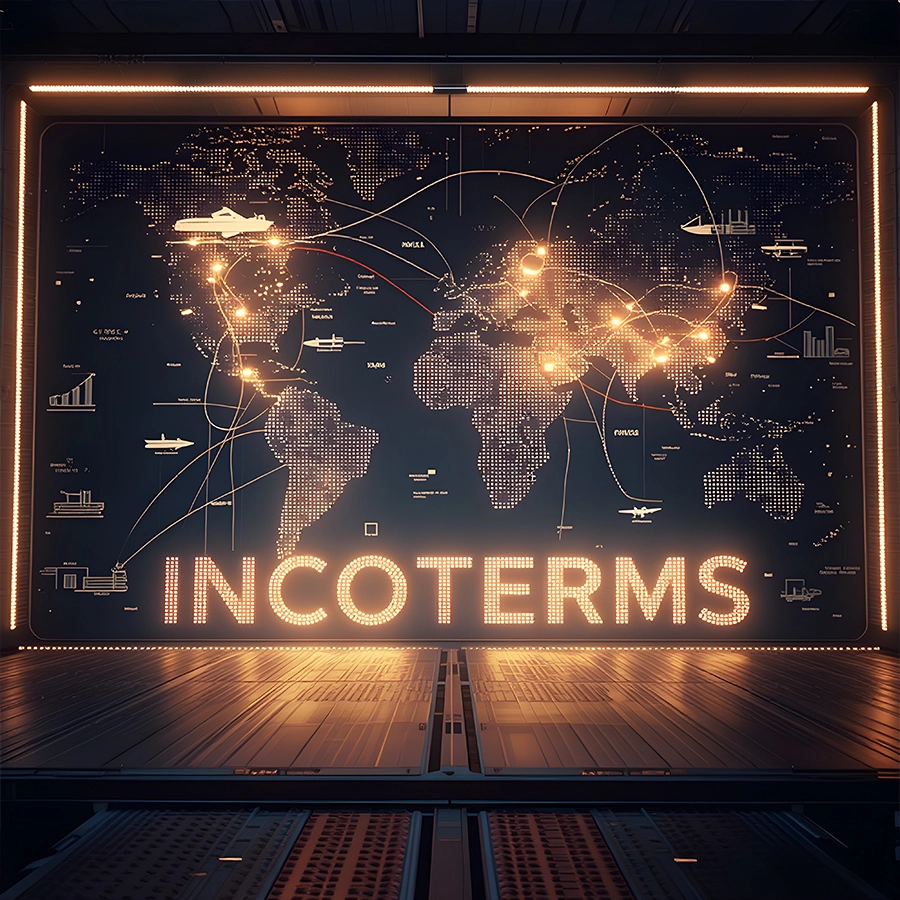Introduction
In the world of international trade, coordination and transparency between buyers and sellers from different countries are essential. To facilitate this coordination, global standards such as INCOTERMS (International Commercial Terms) have been developed. These internationally recognized terms, designed by the International Chamber of Commerce (ICC), serve as guidelines to define the responsibilities, obligations, and costs associated with the transportation of goods.
INCOTERMS are widely used in international trade contracts because they clearly specify who is responsible for transportation, insurance, customs clearance, and other costs. Using these standards reduces disputes and ambiguities, making trade processes more efficient. This article explains INCOTERMS, their applications in global trade, and the most commonly used terms.
Definition and Purpose of INCOTERMS
INCOTERMS, short for International Commercial Terms, are a set of standardized trade terms first published by the International Chamber of Commerce (ICC) in 1936. Their main purpose is to clarify responsibilities, costs, and risks associated with shipping goods in international trade.
INCOTERMS are especially useful in transactions involving the transportation of goods across borders, as they define each party’s obligations regarding shipping, delivery, insurance, and customs duties. The use of these standardized terms enhances contract transparency and minimizes trade disputes.
Categories of INCOTERMS
INCOTERMS are divided into two main categories:
- Terms applicable to all modes of transportation
- Terms specific to sea and inland waterway transport
1. INCOTERMS Applicable to All Modes of Transportation
These terms can be used for any type of transportation, including road, air, rail, and sea transport:
- EXW (Ex Works – Delivery at Seller’s Premises): The seller delivers the goods at their own premises (e.g., factory, warehouse, or workshop). The buyer is responsible for all transportation costs and risks from that point onward. This term is ideal for buyers who want full control over the shipping process.
- FCA (Free Carrier – Delivery to Carrier): The seller delivers the goods to a carrier designated by the buyer. From that moment, all risks and costs are the buyer’s responsibility.
- CPT (Carriage Paid To – Freight Paid to Destination): The seller pays for transportation up to a specified destination, but once the goods are handed over to the carrier, the risks transfer to the buyer.
- CIP (Carriage and Insurance Paid To – Freight and Insurance Paid to Destination): Similar to CPT, but the seller is also responsible for insuring the goods.
- DAP (Delivered at Place – Delivery to a Specified Location): The seller transports the goods to the buyer’s designated location and covers the shipping costs. This term is useful when the buyer requires additional logistics services.
- DPU (Delivered at Place Unloaded – Delivery Unloaded at Destination): The seller delivers and unloads the goods at the buyer’s location. This term is especially used when goods need to be unloaded at specific sites.
- DDP (Delivered Duty Paid – Delivery with Customs Duties Paid): The seller covers all costs, including transportation and customs duties, and delivers the goods to the buyer after customs clearance in the destination country.
2. INCOTERMS Specific to Sea and Inland Waterway Transport
These terms are only used for maritime or inland waterway transport:
- FAS (Free Alongside Ship – Delivery at Port Dockside): The seller delivers the goods alongside the ship at the designated port. From that point, all risks and costs are transferred to the buyer.
- FOB (Free on Board – Delivery on Board the Ship): The seller delivers the goods on board the ship at the designated port. After loading, all shipping costs and risks are the buyer’s responsibility. This is one of the most commonly used terms in maritime exports.
- CFR (Cost and Freight – Cost and Freight Paid to Destination Port): The seller covers the shipping costs to the destination port, but once the goods are loaded onto the ship, the risks transfer to the buyer.
- CIF (Cost, Insurance, and Freight – Cost, Insurance, and Freight Paid to Destination Port): Similar to CFR, but the seller is also responsible for insuring the goods during transit.
Advantages of Using INCOTERMS
Using INCOTERMS in trade agreements offers several key benefits:
- Contract Transparency INCOTERMS clearly define each party’s responsibilities, preventing misunderstandings and disputes.
- Reduced Risks Since risks and responsibilities are explicitly stated, the likelihood of transportation or customs-related problems is minimized.
- Simplified Trade Processes With a globally recognized standard, businesses from different countries can easily work together under common terms.
- Flexibility in Transportation Methods Buyers and sellers can choose the most suitable INCOTERMS based on their logistics needs and market conditions.
Most Commonly Used INCOTERMS in International Trade
Among the many INCOTERMS, some are used more frequently in global trade:
- FOB (Free on Board): Widely used in maritime shipping due to its simplicity and clear responsibility allocation.
- CIF (Cost, Insurance, and Freight): Commonly used for sea freight when buyers want the seller to handle insurance.
- EXW (Ex Works): Suitable for buyers who want complete control over transportation and costs.
- DDP (Delivered Duty Paid): Ideal for buyers who prefer sellers to handle all shipping and customs processes.
Challenges of Using INCOTERMS
Despite their benefits, using INCOTERMS can present some challenges:
- Interpretation Differences Different countries may interpret INCOTERMS differently, leading to legal disputes.
- Need for Proper Knowledge and Training To use INCOTERMS correctly, both parties must fully understand their details and implications.
- Limited Scope INCOTERMS only cover transportation responsibilities and costs but do not define payment terms, quality standards, or contract termination conditions.
Conclusion
INCOTERMS are essential tools in international trade that help reduce disputes and improve transparency in commercial contracts. Terms such as FOB and CIF are widely used in maritime trade, especially for goods requiring insurance and international shipping.
Understanding INCOTERMS and choosing the right term based on each transaction’s specific needs can improve efficiency, minimize risks, and ensure smoother international business operations.



